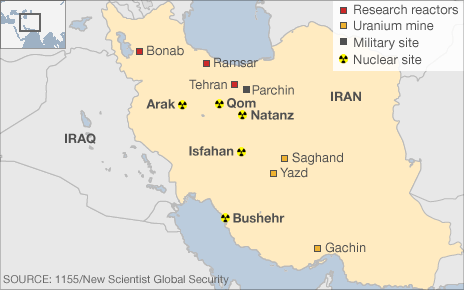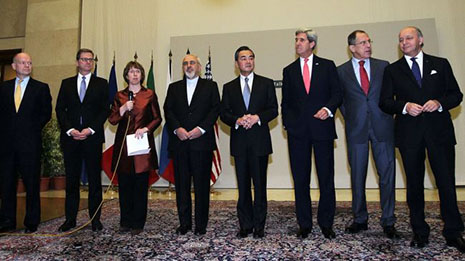An interim agreement to freeze Iran`s nuclear programme will enter into force on 20 January, it has been announced.
The deal, agreed in talks with world powers in November, envisages easing of some international sanctions on Tehran.
US President Barack Obama welcomed the news but said more work was needed to strike a long-term deal. He threatened new sanctions if there was a breach.
The West accuses Iran of seeking nuclear weapons, but Tehran has consistently denied that.
The EU`s foreign policy chief Catherine Ashton said the world powers would now ask the United Nations` nuclear watchdog (IAEA) to verify the deal`s implementation.
Baroness Ashton represents the five permanent members of the UN Security Council - US, Russia, China, France and Britain - plus Germany in the talks with Iran.
"The foundations for a coherent, robust and smooth implementation of the joint plan of action over the six-month period have been laid," she said.
Under the terms of the deal, Iran has agreed to halt enrichment of uranium above 5% purity, and "neutralise" its stockpile of near-20%-enriched uranium.
In return, the world powers agreed to suspend certain sanctions on trade in gold and precious metals, Iran`s automotive sector, and its petrochemical exports.
Senior US administration officials told the BBC that some of the sticking points that had been resolved in the past six weeks centred on how often inspectors would be allowed to visit Iran`s nuclear sites. Officials say as a result of the deal:
From 20 January, Iran will start diluting its stockpile of 20%-enriched uranium
All 20%-enriched uranium will be gone within six months
Daily access will be provided to the Fordo uranium enrichment site near the holy city of Qom
Monthly inspections will be allowed at the Arak heavy water reactor

In his statement, President Obama said: "Beginning 20 January, Iran will for the first time start eliminating its stockpile of higher levels of enriched uranium and dismantling some of the infrastructure that makes such enrichment possible."
In return, he added, over the next six months the US and the other five powers would begin to implement "modest relief" so long as Iran fulfilled its obligations.
"Meanwhile, we will continue to vigorously enforce the broader sanctions regime, and if Iran fails to meet its commitments we will move to increase our sanctions," he said.
And in a warning to his critics in the US Congress, who want to impose additional sanctions, he said he would veto any legislation enacting new sanctions during the negotiations.
Iran`s senior nuclear negotiator, Abbas Araqchi, told Iranian TV that under the deal Iran would not limit its work on research and development, but it would halt the increase in facilities.
"For example, no new centrifuges will be added, no new centrifuges will be produced, and no new facilities will be installed at Arak. We will not expand the quantity of our programme, but we will expand the quality," he said.
He also said that the international negotiators had agreed to transfer $4.2bn (£2.6bn) of oil revenues in eight stages over six months.
UK Foreign Secretary William Hague welcomed "an important step towards peacefully resolving the Iranian nuclear issue, on which comprehensive negotiations will now start".
US Secretary of State John Kerry said that while implementation of the agreement was a critical, significant step, it was the next phase - of negotiating a comprehensive deal - that posed a "far greater challenge", to guarantee Iran`s nuclear programme was peaceful.
"The negotiations will be very difficult but they are the best chance that we have to be able to resolve this critical national security issue peacefully and durably."
More about:
















































